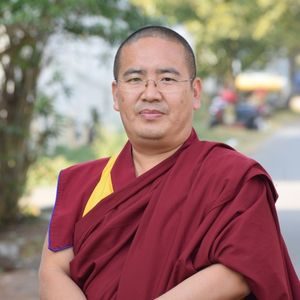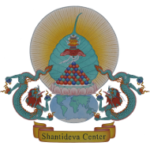Teachings with Tengyur Rinpoche
The Relevance of Buddha’s Teaching in Today’s World
Can Buddha’s teaching make a difference to an individual’s life who is a non-believer or even a modern non-sectarian Buddhist? A universal approach to the teaching of Buddha by finding commonalities between Buddha and our lives may be a solution to our problems and needs in this modern era. Tengyur Rinpoche leads this exploration on how the Buddha’s teachings might relate to our own lives in this modern era, and how they can meet us where we are—no matter our belief system.
Can a Buddhist Truly Be a Non-Sectarian?
There are over dozens of various traditions from Theravada to Mahayana and Vajrayana to various traditions within Tibetan Buddhism. These diversities pose difficulties to individuals who are new to Buddhism and who face dilemmas in moving between traditions. In this talk by Tengyur Rinpoche, we discuss what sectarian or non-sectarian means in Buddhist traditions and whether one can practice multiple traditions—or none of the traditions—and call oneself a Buddhist.
Additional Materials
One Teacher Many Traditions by Thubten Chodron
Prayers:
Prayers for Teachings – Tengyur Rinpoche – January 2024 (Standard PDF) (Mobile-friendly PDF)
Recordings
This is a playlist. To jump to a particular session, click the playlist icon (near the top-right corner) of the video frame to select video.
About the Teacher
 Tengyur Rinpoche is a graduate of Sera Jay Monastery with the highest title of Geshe Lharampa, and also studies at Harvard Divinity School where he is currently earning his M.A. Since 2012, he has served as a junior English translator for His Holiness the Dalai Lama.
Tengyur Rinpoche is a graduate of Sera Jay Monastery with the highest title of Geshe Lharampa, and also studies at Harvard Divinity School where he is currently earning his M.A. Since 2012, he has served as a junior English translator for His Holiness the Dalai Lama.
Rinpoche was born in Tawang in the northeastern part of India and became a monk at the age of nine. He founded the Thubten Shedrubling Foundation in his hometown of Tawang, a Buddhist center and modern school that offers free education to children in need. In 2021, Tengyur Rinpoche founded Wisdom Bridges, Inc., a U.S.-based NGO dedicated to helping children in remote Himalayan communities fulfill their potential through education. Its approach combines traditional wisdom with modern learning while sustaining its students’ connection to their language and culture.


